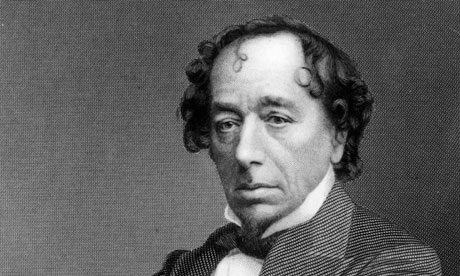The Cabinet reshuffle is now underway, with IDS back in welfare and Michael Gove as Justice Secretary, with a brief to sort out the Human Rights Agenda mess. So David Cameron is opening a new stage in his leadership – and one that moves beyond the weird world of Tory factionalism. I’m hoping that the One Nation conservatism he spoke about after his triumph last week will now become the theme of his leadership. And that, with this reshuffle, he will start with One Party conservatism.
Uniting the party is easier than it sounds – he just has to persuade diehards on both sides that the war is over. They’re still at it. The Tory wars of 1990-2005 were traumatic, and its veterans emerged with kind of post-traumatic stress disorder. Even now, they see the world (and the party) through the labels used in that period. Mods vs Rockers. Modernisers vs Thatcherites. Let’s call them the Tory Factionalists, those who are still – in their heads – fighting wars that ended a decade ago. The left faction has given the same advice to Cameron for ten years: don’t give in to the Evil Tory Right! You started so well, Dave, but then you veered to the right – and made yourself unelectable! You were bound to lose the election, with your swivel-eyed EU pledges, banging on about low taxes and right-to-buy!
Similarly, the Tory Factionalists of the right still see him as husky-hugging, kale-munching, metropolitan sellout who was bound to fail. This time last week you could see both sides preparing to blame the other – had Ed Miliband prevailed. It would be war, just like the good old days!
But with his stunning majority victory, Cameron has quietly confounded both groups. He didn’t need to wear any clothes that had been designed for Michael Portillo. Steered by Lynton Crosby, he ended up with a radical and plausible policy agenda: he’d legislate to ban tax rises, give 1.3m housing association tenants the right to buy their council house and make good his EU referendum pledge. Here was blue collar conservatism, rewarded by a massive blue collar vote. Just as Cameron intended. This platform, a bold retail offer to voters based on low taxes and sound finance, won the day. But when James Forsyth and I spoke to Cameron a fortnight ago, he seemed sad that this broader aspect of his mission – things like school reform and social mobility – had been ‘very undersold in many ways.’
If he plays One Nation conservatism properly, Cameron can now do all the selling he likes. And, in so doing, persuade the minority of still-warring Tories that they have more in common with each other than they might think. Take Michael Gove’s school reform: that was robust, and radical – but dedicated to helping poor kids in sink estates. The rich do very well out of the current state education system – Gove’s reforms were all about those at the bottom. This was One Nation conservatism at work. Then take Iain Duncan Smith, another one who would be put down by the Tory Factionalists as being on the right. But his work with the Centre for Social Justice is, again, exclusively aimed at helping those at the margins of society; those who most need government’s help.
Looking back at my interviews with David Cameron over the years, he has always returned to a theme that he never quite managed to build properly in coalition: the revival of villa conservatism, ‘progressive goals by conservative means’. It’s a unifying theme, and (I suspect) what he now means when he says One Nation. This would be a different to the old One Nation conservatism. In a Spectator article in 2001, Matthew Parris offered this definition:
‘One Nation Toryism whispers ‘tread carefully’. ‘Never forget the rest’, ‘gently does it’, and `so far and no further’ are its themes. Its champions within the party, like any useful antibody, may be perfectly unaware of their allotted role and be motivated by pure altruism, by kindness and the best of human feelings; but their value to their party is as a shield and that is why it needs them. Fear is not what drives a One Nation Tory, but fear is what drives his party to take notice of him.’
To everything, there is a season. Back in 2001, it may have been right for One Nation Toryism to urge caution – now, it is about urging radicalism. Because the forces of social segregation, the system that has sent inequality cascading down the generations, are precisely the forces which David Cameron has been trying to confront (and, in doing so, was constantly being frustrated by Liberal Democrats).
One Nation Toryism now whispers: ‘Finish Universal Credit! Tear up the old welfare system that trapped so many! Make sure work pays far more for those at the bottom’. One Nation Toryism now means thinking urgently about why so many have been left behind by this economic recovery, and what can be done for them. It means reforming the education system so that, within the state system, parental wealth is no longer the surest indicator of a kid’s exams results. When it comes to such tasks, ‘gently’ will not do it. Only courage, fortitude, radicalism and stamina will do it.
With a victory that rises above the old factionalism of his party, Cameron is perfectly positioned now to unite it. And I do hope he was serious about bringing back – and redefining – One Nation conservatism. So far, he has lacked a personal mission. This can be it.







Comments